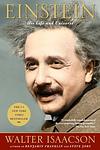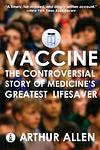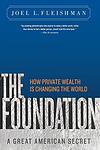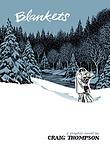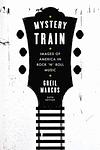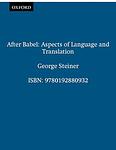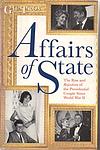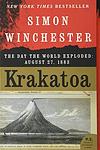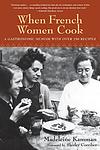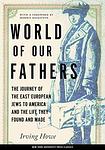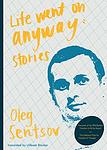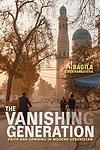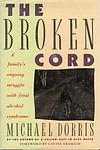The Greatest "Nonfiction" Books Since 1900
Click to learn how this list is calculated.
This list represents a comprehensive and trusted collection of the greatest books. Developed through a specialized algorithm, it brings together 300 'best of' book lists to form a definitive guide to the world's most acclaimed books. For those interested in how these books are chosen, additional details can be found on the rankings page.
Genres
Countries
Date Range
Reading Statistics
Click the button below to see how many of these books you've read!
Download
If you're interested in downloading this list as a CSV file for use in a spreadsheet application, you can easily do so by clicking the button below. Please note that to ensure a manageable file size and faster download, the CSV will include details for only the first 500 books.
Download-
2001. The Making Of A Tropical Disease by Randall M. Packard
This book offers a comprehensive history of malaria, tracing its impact on human societies over the millennia and examining the socio-economic and environmental factors that have influenced its spread and severity. The narrative delves into the evolution of medical and scientific understanding of the disease, the development of public health responses, and the challenges of controlling malaria in various geopolitical contexts. It highlights the interplay between colonialism, global economic policies, and disease control efforts, revealing how historical and structural inequalities have shaped the global burden of malaria. Through a detailed analysis, the book provides insights into the complexities of malaria as not just a biological phenomenon but a "tropical disease" deeply entangled with human history, politics, and the environment.
-
2002. Einstein by Walter Isaacson
This biography provides an in-depth look at the life of one of history's most brilliant minds, delving into not only his groundbreaking contributions to physics, including the theory of relativity, but also his personal life, political views, and philosophical beliefs. The author meticulously chronicles the journey of a patent clerk who evolved into a Nobel Prize-winning physicist, exploring how his rebellious nature, intellectual curiosity, and persistence in questioning established norms led to some of the most revolutionary scientific discoveries of the 20th century. Through a wealth of personal letters and interviews, the book paints a comprehensive picture of a man who, beyond his scientific genius, was deeply involved in social and political issues of his time, including Zionism and pacifism, showcasing his enduring impact on both science and society.
-
2003. The Black Swan by Nassim Nicholas Taleb
The book delves into the profound impact of highly improbable and unpredictable events that have massive consequences, which the author terms as "Black Swans." It challenges our understanding of the world by critiquing how we rely on simplistic models to predict the future, often overlooking the possibility of such rare events that can reshape our reality. Through a blend of philosophical insights and practical wisdom, the narrative encourages readers to embrace uncertainty and unpredictability, arguing that our ability to deal with Black Swans is more important than trying to predict them. The author's exploration spans across various domains, including finance, science, and history, illustrating how Black Swans have shaped the course of human events and urging a reevaluation of how we think about risk and reward in an inherently unpredictable world.
-
2004. Big History by Cynthia Stokes Brown
This book offers a sweeping overview of the universe's 13.8 billion-year history, from the Big Bang to the present day, integrating insights from a wide range of disciplines including cosmology, geology, anthropology, and history. It presents an accessible and engaging narrative that explores major developments and themes across time, highlighting the interconnectedness of the cosmos, Earth, life, and humanity. By weaving together the sciences and humanities, the book provides readers with a comprehensive understanding of the complexity and richness of the universe's story, encouraging a deeper appreciation of humanity's place within the vast tapestry of existence.
-
2005. Vaccine by Arthur Allen
This book provides a comprehensive history of vaccines, tracing their development from the earliest days of smallpox inoculation to the modern era of genetic engineering and pandemic preparedness. It delves into the scientific breakthroughs, the battles against various diseases, and the controversies that have surrounded vaccination efforts over the years. The narrative also highlights the roles of key figures in the field of immunology and public health, and examines the ethical, political, and social challenges that have accompanied vaccine development and deployment. Through a detailed exploration of past successes and failures, the book underscores the critical role of vaccines in advancing public health and the ongoing need for innovation and vigilance in the fight against infectious diseases.
-
2006. The Foundation by Joel L. Fleishman
This book provides an in-depth exploration of the philanthropic landscape, examining the role and impact of foundations in society. It delves into the history, operations, and challenges faced by philanthropic organizations, offering insights into how they can effectively contribute to public good. Through a blend of case studies and analysis, the author sheds light on the complexities of philanthropy, the ethical considerations involved, and the potential for foundations to drive positive change in various sectors. The narrative is both a critique and a celebration of philanthropic efforts, aiming to enhance understanding and encourage more strategic and impactful giving.
-
2007. Blankets by Craig Thompson
This graphic novel is a coming-of-age autobiography that explores the complexity of family relationships, faith, love, and the transition into adulthood. The story follows the protagonist as he navigates his way through a strict and oppressive religious upbringing in a rural, snowy setting. The narrative dives deep into his first love, his relationship with his younger brother, and his struggle to reconcile his religious beliefs with his personal experiences. The book is a poignant exploration of the heartache and joy of growing up.
-
2008. Mystery Train by Greil Marcus
"Mystery Train" offers a profound exploration of American culture through the lens of its music, particularly rock 'n' roll. The book delves into the lives and works of key figures in the genre, such as Elvis Presley, Bob Dylan, and Sly Stone, examining how their music reflects and shapes the American experience. The author intertwines musical analysis with broader historical and social context, presenting rock 'n' roll not just as entertainment, but as a force that embodies the complexities of American identity and the ongoing struggle for a more perfect union.
-
2009. After Babel by George Steiner
"After Babel" explores the intricate realm of translation, delving into its impact on communication, literature, and society. The book argues that translation is a fundamental aspect of human expression and understanding, shaping how we interact and exchange ideas across different languages and cultures. It examines the historical evolution and theory of translation, challenging the notion of exact equivalence between languages and emphasizing the creative, interpretative act of translating. Through a blend of linguistics, philosophy, and literary analysis, the work addresses the complexities and inherent challenges of translation, proposing that every act of communication is, in essence, an act of translation.
-
2010. Secrets Of The Flesh by Judith Thurman
"Secrets of the Flesh" is a comprehensive biography that delves into the life and work of a pioneering French writer, known for her controversial and ahead-of-her-time ideas on gender, sexuality, and identity. The book explores her complex relationships, intellectual pursuits, and the societal challenges she faced, providing a vivid portrayal of her personal struggles and triumphs. It also examines her significant impact on feminist literature and thought, offering insights into her enduring influence on contemporary discussions about women's rights and freedom.
-
2011. An Affair Of State by Richard A. Posner
"An Affair of State" delves into the scandal and subsequent impeachment of President Bill Clinton, focusing on the legal and ethical dimensions of his affair with Monica Lewinsky and the investigations led by Independent Counsel Kenneth Starr. The book critically examines the actions of the key players involved, the political and judicial processes, and the broader implications for the American legal system and presidential power. The author, a prominent legal scholar and judge, provides a detailed analysis of the constitutional, moral, and procedural controversies surrounding the case, arguing for a reevaluation of the intersection between private morality and public office.
-
2012. Reading The Holocaust by Inga Clendinnen
"Reading the Holocaust" is an insightful exploration into the complex human realities of the Holocaust. The book delves into the motives and behaviors of both the perpetrators and the victims, challenging simplistic explanations and moral judgments. Through a meticulous examination of diaries, letters, and official documents, the author provides a nuanced analysis of the events and psychology that shaped this dark period in history. The work emphasizes the importance of understanding the Holocaust in all its complexity to better grasp the capacities and limits of human nature.
-
2013. Seminary Boy by John Cornwell
"Seminary Boy" is a memoir that delves into the author's experiences as a young boy in the 1950s, who is sent to a Catholic seminary with the hope of becoming a priest. The narrative captures the strict and often harsh realities of seminary life, marked by rigorous discipline, religious fervor, and the struggle to conform to the expectations of the Church. As the author grows up within the confines of this institution, he grapples with his faith, the challenges of adolescence, and the dawning realization of the wider world beyond the seminary walls. This coming-of-age story is a poignant exploration of innocence, belief, and the search for personal identity amidst the backdrop of a changing religious landscape.
-
2014. Krakatoa by Simon Winchester
The book provides a comprehensive account of the catastrophic eruption of the Krakatoa volcano in 1883, one of the deadliest volcanic events in recorded history. It explores the geological and historical context leading up to the eruption, detailing the scientific discoveries and cultural impacts that followed. The narrative delves into the global effects of the eruption, such as climatic changes and spectacular sunsets observed worldwide, and examines its profound influence on the local and global political landscapes. Through a blend of history, science, and vivid storytelling, the book captures the awe-inspiring power of nature and its lasting impact on human society.
-
2015. Under The Banner Of Heaven by Jon Krakauer
The book delves into the disturbing world of religious extremism within certain sects of the Mormon faith, particularly focusing on a brutal double murder committed by two brothers who believed they were commanded by God to kill. Through meticulous research and interviews, the narrative explores the history of the Church of Jesus Christ of Latter-day Saints and examines how its teachings have been interpreted and misused by fundamentalist offshoots. The author intertwines the true crime investigation with a broader discussion on the nature of faith and the potent influence of religious belief on human behavior.
-
2016. Hermit Of Peking by Hugh Trevor-Roper
"Hermit of Peking" is a captivating biography that explores the enigmatic life of Sir Edmund Backhouse, a British sinologist and orientalist who lived in Beijing during the late 19th and early 20th centuries. The book delves into Backhouse's controversial career, including his role as a scholar, his fraudulent historical documents, and his eccentric personal life. Drawing from a wealth of sources, the author critically examines Backhouse's contributions to Western perceptions of China, revealing a complex figure whose legacy is a blend of genuine scholarship and elaborate deceit.
-
2017. Plagues And People by William H. McNeill
"Plagues and People" is a pioneering work that examines the complex relationship between human societies and infectious diseases over the centuries. The book explores how waves of epidemics have influenced health, social, and political outcomes across different civilizations, shaping the course of human history. By analyzing the impact of widespread diseases from ancient times through the modern era, it highlights the role of infectious outbreaks in precipitating demographic shifts, altering societal structures, and influencing the rise and fall of empires. The narrative underscores the interplay between disease and human progress, revealing how humanity's efforts to control and mitigate the effects of plagues have driven advancements in medicine and public health.
-
2018. When French Women Cook by Madeleine Kamman
The book serves as both a culinary journey and a heartfelt tribute to the regional cuisines of France, as experienced through the kitchens of eight influential French women who played pivotal roles in shaping the author's understanding and appreciation of French food. Each chapter is dedicated to one of these women, exploring their unique contributions to French cooking, intertwined with personal anecdotes, regional recipes, and reflections on the cultural, historical, and geographical influences that shaped their culinary philosophies. The book not only offers a collection of traditional recipes but also delves into the stories of these women, emphasizing the importance of passing down culinary heritage and the intimate connection between food, family, and culture.
-
2019. World Of Our Fathers by Irving Howe
"World of Our Fathers" delves into the migration, lives, and cultural integration of Eastern European Jews who moved to America, particularly New York City, around the turn of the 20th century. The book explores the challenges these immigrants faced, including poverty and assimilation, while also highlighting their contributions to American society and the rich cultural heritage they maintained. It examines the evolution of Jewish identity in the United States, the rise of labor movements, and the impact of socialism and secularism on Jewish life, providing a comprehensive historical and sociological analysis of this significant immigrant group.
-
2020. The Origin Of Consciousness In The Breakdown Of The Bicameral Mind by Julian Jaynes
The book explores a theory that human consciousness, as understood today, did not develop until about 3,000 years ago. Prior to this, according to the author, human behavior was governed by mental processes he describes as "bicameral," where the brain's two hemispheres had distinct roles, with one side responding to the other with auditory hallucinations that the individual obeyed as commands from gods. These hallucinations ceased as changes in society, language, and writing increased complexity in human interactions, leading to the development of introspective consciousness.
-
2021. Life Went On Anyway by Oleg Sentsov
"Life Went On Anyway" is a powerful memoir that chronicles the life of Oleg Sentsov, a Ukrainian filmmaker who was wrongfully imprisoned by the Russian government. Through his vivid and poignant storytelling, Sentsov shares the harrowing details of his arrest, imprisonment, and the relentless fight for justice. Despite the unimaginable hardships he endures, Sentsov's resilient spirit shines through as he reflects on the power of art, the importance of freedom, and the indomitable human will to survive.
-
2022. The Vanishing Generation: Faith And Uprising In Modern Uzbekistan by Bagila Bukharbayeva
"The Vanishing Generation: Faith And Uprising In Modern Uzbekistan" explores the complex relationship between faith, politics, and social change in contemporary Uzbekistan. Through in-depth interviews and extensive research, the author delves into the lives of young Uzbeks who are navigating the challenges of religious identity, political repression, and the desire for societal transformation. This thought-provoking book sheds light on the struggles and aspirations of a generation caught between tradition and modernity in a rapidly changing society.
-
2023. The Broken Cord by Michael Dorris
This book is a poignant memoir of a single man who adopts a three-year-old American Indian boy, only to discover several years later that his son suffers from fetal alcohol syndrome, a condition that was not well understood at the time. The narrative chronicles the man's journey to understand and cope with his son's condition, while also shedding light on the devastating effects of alcohol abuse on unborn children. The book also delves into the broader social issues surrounding Native American communities and the systemic problems that contribute to alcoholism among these populations.
-
2024. The Spirit Level by Richard Wilkinson
This book presents a compelling argument that income inequality within a society leads to a wide range of social and health problems. The authors use a variety of statistical data from different countries to show that societies with more equal distribution of incomes have better health, fewer social problems such as violence, drug abuse, and mental illness, and are more cohesive than ones in which the gap between the rich and poor is greater. The book challenges the notion that societal problems are inevitable in modern, developed societies and offers a new way of understanding how we can improve the quality of life for all.
-
2025. The 57 Bus by Dashka Slater
This non-fiction book tells the true story of two teenagers from Oakland, California, whose lives intersect on a city bus. One, a black teen from a rough neighborhood, and the other, a genderqueer white teen from a middle-class background, are brought together by a reckless, tragic act of violence. The book explores themes of gender, race, and justice as it delves into the circumstances that led to the incident, the aftermath of the crime, and the complex personal and societal factors that shape the lives of the individuals involved. Through meticulous reporting and compassionate storytelling, the narrative examines the consequences of the event for both families and the community at large, challenging readers to consider the nuances of empathy and forgiveness.
Reading Statistics
Click the button below to see how many of these books you've read!
Download
If you're interested in downloading this list as a CSV file for use in a spreadsheet application, you can easily do so by clicking the button below. Please note that to ensure a manageable file size and faster download, the CSV will include details for only the first 500 books.
Download
